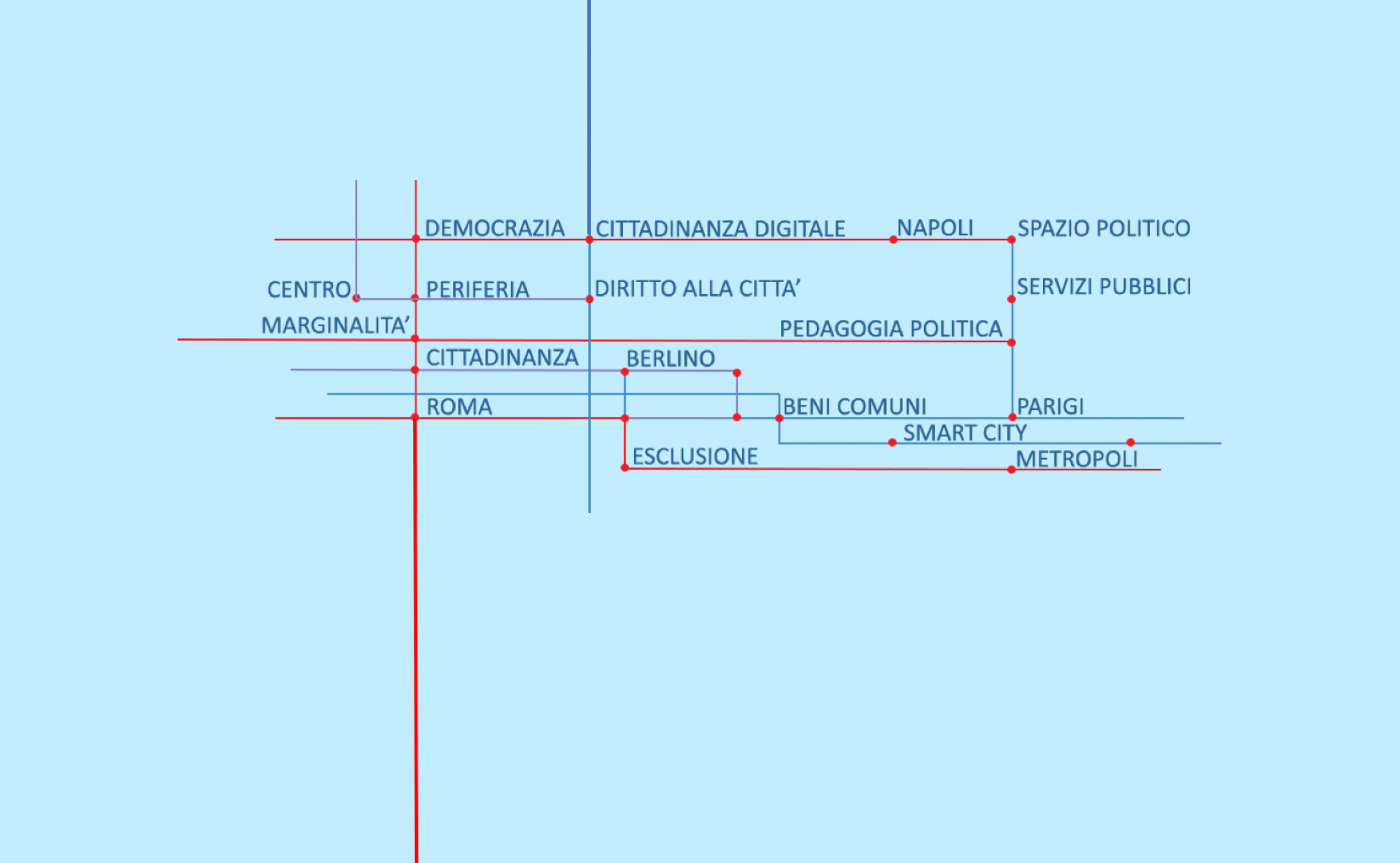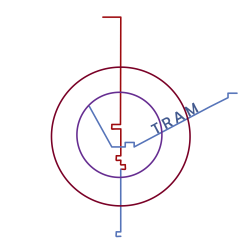TRA.M. – Transformations in the Metropolis
The city as political space. Urban fabric and political body: the crisis of a metaphor
«But why, then, does the city exist? What line separates the inside from the outside, the rumble of wheels from the howl of wolves?» (Italo Calvino, Invisible Cities)
The city as a political space is a topic that gently unravels through the history of thought. It all starts with Aristotle, who meant the polis as a political space delimitated by walls, and politics itself as the architectonic science par excellence, something that would soon-become a topos. This Leitmotiv went all along the Middle Age, eventually culminating in the urbs–civitas dichotomy. Nevertheless, this research has decided to investigate most of all modernity and the crisis of such a topos in the present age.
The modern paradigm of city as a political space consists in the idea that such a space needs a capacity to trace plans and projects. And such capacity is entitled to the sovereign political will (which is definitely coincident with a State-shape). Nowadays, the crisis of both State and the classical – 500 hundreds years old – idea of sovereignty is also evident in today’s urban planning. The progressive success of “non-places” or of architectonical space reduced to “junkspace” is a result of that very moment when the political will gave up or simply wasn’t able to express itself in a righteous planning of city as a political space.
Time has come to draw a map of the subjects who should think about how to reconstruct a political and planning ability: the great opportunity this crisis offers gives the chance to think how to enhance the meaning of political space using new contents, i.e. new paradigms and new interests. Something who might adhere to innovations and new languages.
A new citizenship, a new architecture of public spaces, a new map of knowledge and rights, which may be able to re-think traditional categories. The city must be considered as a laboratory where its images get de-constructed and re-constructed through theoretical, epistemological, historical and practical skills. The present city is the workshop to think and redefine the common spaces in relation to the contradictions of global society. The urban space must be renewed as the space of inclusion, as the centre of the imputation of rights and as a bastion with respect to the deterritorialization of law.

